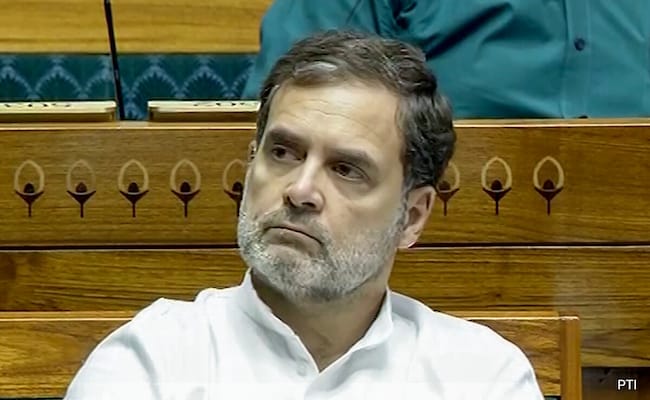Congress has vehemently criticized the BJP for accusing Leader of Opposition in the Lok Sabha, Rahul Gandhi, of inciting violence against Prime Minister Narendra Modi, denouncing it as “cheap politics”.
The accusations leveled by the BJP against Rahul Gandhi, alleging his involvement in instigating violence against Prime Minister Narendra Modi, have sparked a sharp response from the Congress party. Terming the allegations as baseless and politically motivated, Congress leaders have rallied behind Gandhi, asserting that such claims are aimed at diverting attention from substantive issues facing the nation.
In a statement issued earlier today, senior Congress members criticized the BJP’s approach, labeling it as an attempt to tarnish the reputation of their leader without any credible evidence. They argued that Rahul Gandhi has consistently advocated for peaceful dialogue and democratic principles, and any insinuation of violence is purely speculative and misleading.
“This is nothing but a desperate ploy by the BJP to deflect public attention from its failures,” remarked a prominent Congress spokesperson, highlighting that the ruling party should focus on addressing pressing issues like economic challenges, social disparities, and pandemic recovery instead of resorting to unwarranted accusations.
The controversy has reignited debates on the politicization of security concerns surrounding political leaders, especially in a charged electoral environment. Congress has stressed the need for a responsible discourse where disagreements are debated through constitutional means rather than through sensationalist rhetoric.
Political analysts have pointed out that such exchanges between the BJP and Congress underscore the intensifying competition and polarization within India’s political landscape. With upcoming state elections and the ongoing parliamentary session, the rhetoric from both sides is expected to escalate further, potentially influencing public opinion in the run-up to crucial polls.
Critics of the BJP’s stance argue that accusing opposition leaders of endangering national security without credible proof sets a dangerous precedent for democratic norms. They argue that political discourse should center on substantive policy debates and governance rather than veering into character attacks and unsubstantiated allegations.
Amidst the verbal sparring, calls for restraint and responsible leadership have emerged from various quarters of civil society. Leaders across party lines have been urged to prioritize national unity and constructive dialogue over divisive rhetoric that could undermine public trust in democratic institutions.
As the political standoff continues to unfold, the spotlight remains on how political parties navigate these contentious issues while addressing the urgent needs and aspirations of the electorate. The coming days are likely to witness further exchanges and maneuvers as both the BJP and Congress gear up for electoral battles ahead.
The unfolding saga has once again highlighted the complexities of India’s political dynamics and the challenges of maintaining decorum in public discourse, especially during heightened political tensions. As the nation watches developments closely, the focus remains on whether political leaders can rise above partisan interests to address the substantive concerns of the populace.




 Automobile Retail Sales Up 9% In April-June: FADA
Automobile Retail Sales Up 9% In April-June: FADA 